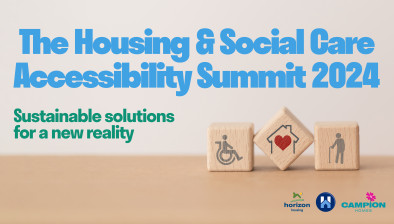Turning net zero ambition into action in construction

Anne Johnstone
As the Scottish Construction Summit approaches, one of its speakers, Anne Johnstone, ESG director at Vital Energi, is set to deliver a crucial message: it’s time to move from ambitious climate pledges to credible, practical action.
With over 25 years of experience, Johnstone brings a pragmatic perspective to a challenge that many organisations are now grappling with – how to make decarbonisation a reality without stalling progress.
Many of the ambitious net zero commitments seen across the industry were born in the 2018-2019 era, a time when declaring a “climate emergency” was common. However, as Johnstone points out, many of these targets were set “without having done the work to understand what it meant for their business”. Now, the practical and financial implications are becoming clear, and companies are facing the difficult task of turning lofty goals into costed, implementable plans.
Johnstone notes that this has created a fear of being accused of greenwashing. In response, the focus is shifting from simply having a target to being able to evidence the journey towards it. “It is really about that detail of, ‘well, actually this is what we’re doing’,” she explains. For Vital Energi, this has meant that sustainability has become “ever more important” to customers and investors, a trend she sees across the UK.
For businesses that set perhaps overly ambitious goals, Johnstone’s advice is clear: be honest and transparent. She advocates for reframing the narrative away from a single target number and towards the quality and scope of data.
She uses her own company as a prime example. “Our carbon footprint looks much bigger now than it did two years ago,” she admits, “but that’s because we have now mapped our entire value chain”. By expanding their analysis to include their full Scope 3 emissions – such as importing solar panels from China or heat pipes from the continent – Vital Energi has a more accurate, albeit larger, baseline. This detailed understanding allows them to identify carbon “hotspots” and plan reductions more effectively. “It can be a better story and a more compelling story to tell people,” she argues, encouraging businesses not to shy away from revealing the full picture.
This data-driven approach also helps reframe sustainability as a value driver. By embedding decarbonisation into business strategy from the outset, companies can identify efficiencies where “carbon saving is cost saving”. Trying to retrofit sustainability at the end of a project, Johnstone warns, is when it becomes “a burden and an expense”.
Focusing on Scotland, Johnstone highlights both a unique opportunity and a challenge. Scotland’s 2045 net zero target – five years ahead of the rest of the UK – was set due to its vast renewable energy potential. However, the nation faces the significant task of decarbonising its own built environment, particularly heat, given its colder climate and older housing stock. While Scotland was initially ambitious with heat legislation, Johnstone notes that progress has stalled, and she urges the industry to unite in asking the government for “a stable regulatory environment that encourages investment”.
Her key takeaway for summit attendees is a practical one: understand your stakeholders and your supply chain. With most of an organisation’s carbon footprint residing in Scope 3, she urges businesses to proactively gather data on their own impacts. “What will happen is one day… someone will [ask], and you won’t be prepared,” she cautions. Whether it’s calculating the embodied carbon in materials or tracking site travel, the first step is to start gathering the information.
Johnstone’s message is one of pragmatic optimism. By embracing transparency, integrating sustainability into core strategy, and collaborating across the supply chain, the construction sector can move beyond pledges and deliver real, measurable decarbonisation.
The Scottish Construction Summit is supported by headline sponsor SPI Piling alongside McLaughlin & Harvey, ValoremFirst, t.i. dynamic facades and CITB. For more information and to buy tickets, click here.

















